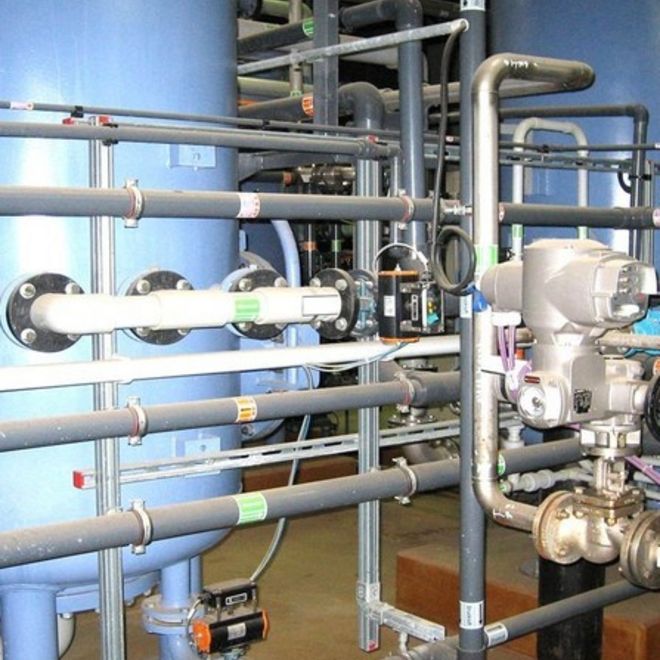Incineration Plants
Modern waste incineration with the environment in consideration – reduction of emissions in the wastewater sector
The multi-level removal of pollutants from flue gas in waste incineration plants is based on dry, semi-dry and wet processes. The reduction of HCl, SO2, HF and heavy metals, including mercury, is effected in multi-stage scrubbers, while acid or gypsum are recycled in order to close industrial material cycles.
While acidic and alkaline degradation can be considered as standard procedure, ingredients such as mercury require specific treatment technologies. We apply procedures such as the 3R-method of fly ash leaching in order to minimize resulting residue streams from incineration.
Our service profile ranges from focused mercury removal, through treatment of heavy metal eluates, to multi-stage treatment of scrubbing water. We use engineering sub-processes such as CO2-stripping, heavy metal precipitation/neutralization, reprecipitation using TMT, sedimentation, ammonium reduction, polishing (filtration, activated carbon, ion exchanger) and sludge dewatering applications.
Due to the upstream thermal process, temperature control of wastewater is essential to meet the required limits and to minimize gypsum-/calcite scaling in the plant.
We offer engineering, procurement, supply and installation, supervision and commissioning/documentation of the complete
wet processing line, including sludge treatment.
Request now
Do you have questions about delivery times, technical details or the realisation of individual systems & solutions?
Contact us! A member of staff will deal with your request and answer it promptly.
You can reach us by telephone at
+49 351 886 4600
Or by e-mail to
info@uit-gmbh.de

